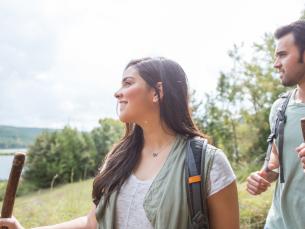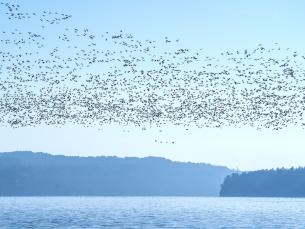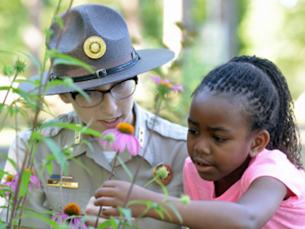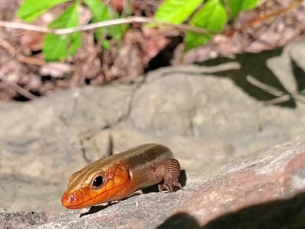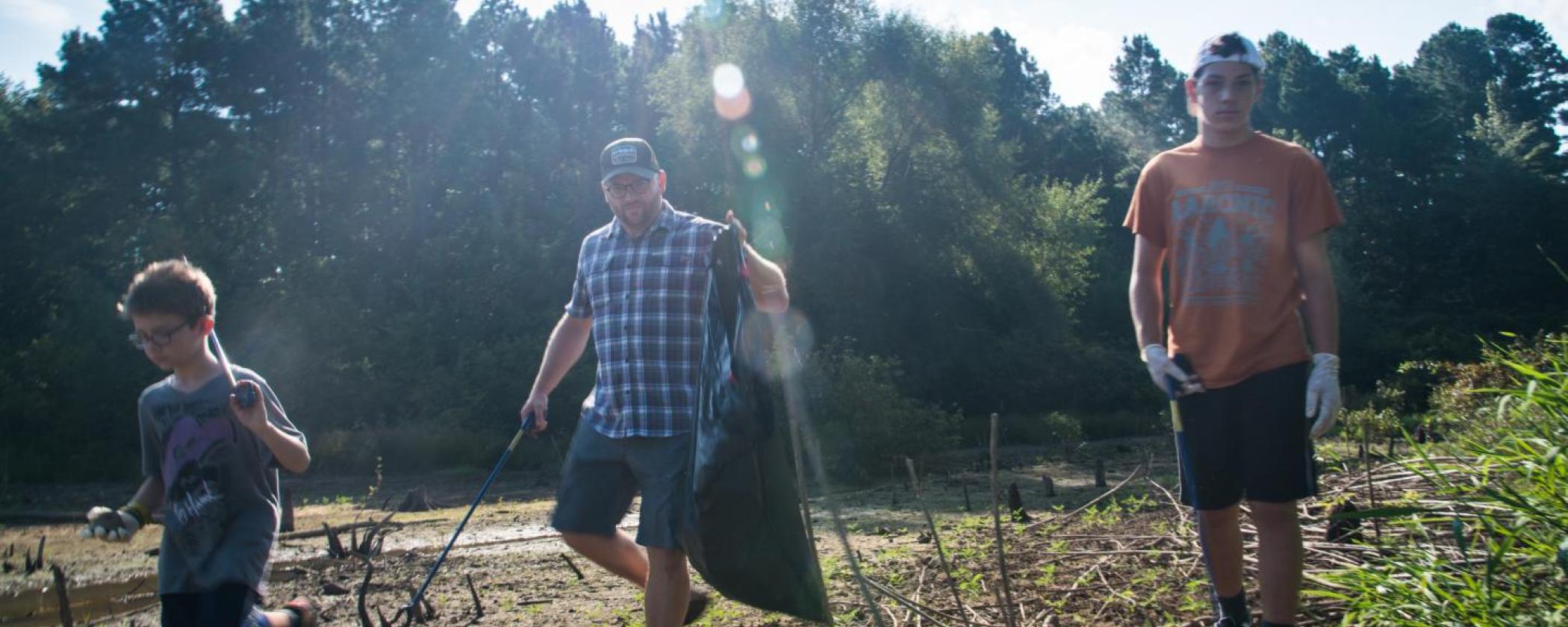
Leave No Trace
You are welcome at Arkansas State Parks. We have one of the most pristine state park systems in the nation to enjoy. In order to protect and make sure your state parks are available for generations to come, it’s important to stay on designated trails, pick up after yourself and don’t litter (cigarette butts are litter), and recreate responsibly. Recreating responsibly has never been easier, as long as you follow these seven principles from the Leave No Trace Center for Outdoor Ethics.
Adequate trip planning and preparation helps backcountry travelers accomplish trip goals safely and enjoyably, while simultaneously minimizing damage to the land. Poor planning often results in miserable campers and damage to natural and cultural resources. Rangers often tell stories of campers they have encountered who, because of poor planning and unexpected conditions, degrade backcountry resources and put themselves at risk.
2. Travel & Camp on Durable Surfaces
The goal of travel in the outdoors is to move through natural areas while avoiding damage to the land or waterways. Understanding how travel causes impacts is necessary to accomplish this goal. Travel damage occurs when surface vegetation or communities of organisms are trampled beyond recovery. The resulting barren area leads to soil erosion and the development of undesirable trails. Backcountry travel may involve travel over both trails and off-trail areas.
The Center encourages outdoor enthusiasts to consider the impacts that they leave behind, which will undoubtedly affect other people, water and wildlife. Proper disposal of human waste is important to avoid pollution of water sources, avoid the negative implications of someone else finding it, minimize the possibility of spreading disease and maximize the rate of decomposition. “Pack it in, Pack it out” is a familiar mantra to seasoned wildland visitors. Any user of recreation lands has a responsibility to clean up before he or she leaves. Inspect your campsite and rest areas for trash or spilled foods. Pack out all trash and garbage.
Allow others a sense of discovery by leaving rocks, plants, archaeological artifacts and other objects of interest as you find them.
Fires vs. Stoves: The use of campfires, once a necessity for cooking and warmth, is steeped in history and tradition. Some people would not think of camping without a campfire. Campfire building is also an important skill for every camper. Yet, the natural appearance of many areas has been degraded by the overuse of fires and an increasing demand for firewood. The development of lightweight efficient camp stoves has encouraged a shift away from the traditional fire for cooking. Stoves have become essential equipment for minimum-impact camping. They are fast, flexible and eliminate firewood availability as a concern in campsite selection. Stoves operate in almost any weather condition—and they Leave No Trace.
Learn about wildlife through quiet observation. Do not disturb wildlife or plants just for a “better look.” Observe wildlife from a distance so they are not scared or forced to flee. Large groups often cause more damage to the environment and can disturb wildlife so keep your group small. If you have a larger group, divide into smaller groups if possible to minimize your impacts.
7. Be Considerate of Other Visitors
One of the most important components of outdoor ethics is to maintain courtesy toward other visitors. It helps everyone enjoy their outdoor experience. Many people come to the outdoors to listen to nature. Excessive noise, uncontrolled pets and damaged surroundings take away from the natural appeal of the outdoors.
By protecting visitors, park rangers and the parks themselves, we can keep our state parks in pristine condition for years to come.
Learn more about how to educate the kiddos on keeping Arkansas beautiful >>
